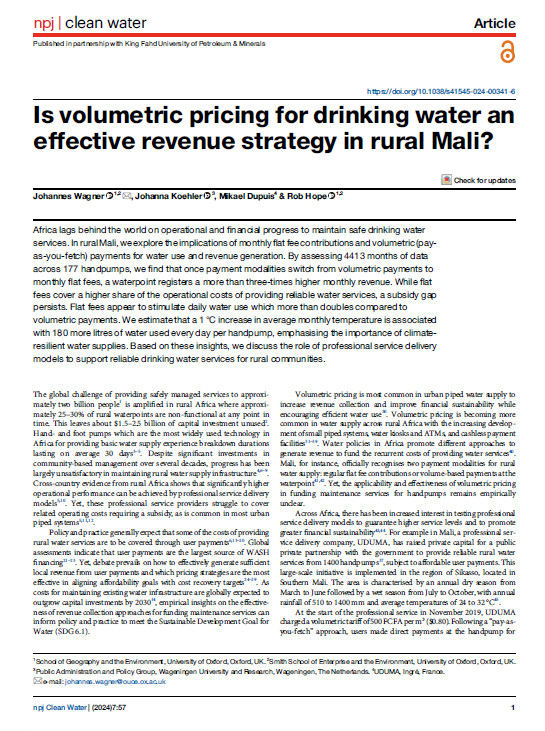Is volumetric pricing for drinking water an effective revenue strategy in rural Mali?
 |
article Jul 2024 ; 10 pages
Aut. Robert Hope & Johannes Wagner & Mikael Dupuis & Johanna Koehler
Ed. Springer - Berlin
Téléchargeable sous format: PdF
Page de présentation d'un éditeur
Abstract:
Africa lags behind the world on operational and financial progress to maintain safe drinking water services. In rural Mali, we explore the implications of monthly flat fee contributions and volumetric (pay-as-you-fetch) payments for water use and revenue generation. By assessing 4413 months of data across 177 handpumps, we find that once payment modalities switch from volumetric payments to monthly flat fees, a waterpoint registers a more than three-times higher monthly revenue. While flat fees cover a higher share of the operational costs of providing reliable water services, a subsidy gap persists. Flat fees appear to stimulate daily water use which more than doubles compared to volumetric payments. We estimate that a 1 °C increase in average monthly temperature is associated with 180 more litres of water used every day per handpump, emphasising the importance of climate-resilient water supplies. Based on these insights, we discuss the role of professional service delivery models to support reliable drinking water services for rural communities.
Mot clef: |
Pays concerné: |
Editeur/Diffuseur: |
|
Springer
-
Springer-Verlag GmbH - Berlin - Allemagne |
En cas de lien brisé, nous le mentionner à communication@pseau.org